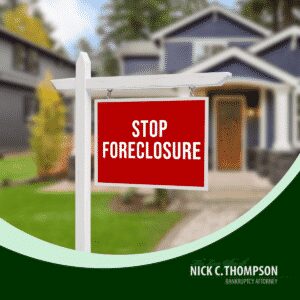Foreclosure is one of the worst things that can happen to someone. In addition, the damage to your credit is worse than if you file bankruptcy. You also lose equity in the home. Then, the lender sticks you with a deficiency judgment, and a 1099-c tax debt replaces the deficiency. Some of the most common causes include unforeseen medical problems, loss of a job, divorce, and or death in the family. Since they are not foreseen, it is hard to prevent and save your home from foreclosure by preparing for them. That’s when the help of a foreclosure lawyer is necessary.
9 Tips to Help You Save Your Home from Foreclosure
First, there is no immunity to problems. Even if you do your financial planning carefully and think about all the possibilities, the world around us is so dynamic and unpredictable, you should expect the unforeseen at any time. After all, having a plan B always comes in handy.
In this article, we look at some tips to help you save your home from foreclosure. If you want a list of some of these ways, we have another article listing ways to avoid home foreclosure. Regardless of whether you are struggling to keep your home right now, it’s always a good idea to have as much information as possible. But, there’s a lot of information for the normal person to absorb so always be willing to consult with a foreclosure lawyer for the best information possible.
1. Retain the records to save your home from foreclosure.
Becoming a homeowner for the first time is a time full of excitement and confusion. After all, you don’t buy a house every day. There are piles of documents to complete, things to remember, deadlines, and commitments to keep. One of the first things to do to avoid foreclosure is to make sure you keep records. Especially retain information related to your loan and double-check to guarantee that it is affordable for you. Then later, if you find yourself facing foreclosure, you already have these records to defend the foreclosure.
If the home is not affordable, you might want to sell it. But there are numerous options that we will discuss. The first thing to ask yourself is if you will be able to make your monthly mortgage payments on time? Taking out a loan, you cannot repay is the top reason why foreclosure occurs. If you feel uncomfortable dealing with this information on your own, it is advisable to seek the advice of a professional foreclosure lawyer with experience in this field.
2. Do your financial planning in advance.
Paying out a house mortgage is a lengthy process that takes years. Although it may be challenging to detail a plan of your financial situation for the next ten years due to the possibility of unforeseen circumstances occurring, try your best to prepare a reliable program, which is relatively easy to follow. Then, to save your home from foreclosure or avoid bankruptcy, you may need to increase your income or lower expenses.
If you think there are any uncertainties, chances of relocation, job transfers, and other factors, which may influence your financial situation, prepare a plan B, which you can rely on in times of crisis. This way, your mortgage payments keep running even in difficult times, and you won’t have to say goodbye to your beautiful home.
3. Contact your lender while there is still time.
It is common for homeowners in trouble to postpone acting upon the problem. However, the time to see a foreclosure attorney is early in the process because waiting too long makes the situation worse. You might be uncertain or uncomfortable talking about the situation. Regardless, it is essential to seek help early. You should speak with an attorney about your options as soon as possible. You should also call your lender to check into alternatives, such as a mortgage modification or work out an agreement.
There are two significant reasons why calling your lender earlier on can help you save your home from foreclosure. First, let’s remind ourselves lenders don’t usually want your house. They have several methods that can avoid foreclosure. In most cases, modifications can be made as long as your financial struggle is not past critical points.
Second, if you contact your lender after or just before the sale, you will have little or no negotiating power. The longer you wait, the worse the alternatives become, and you will have to make more drastic compromises.
4. Check for bank mail regularly.
The dynamic lifestyle that most of us live in today requires prioritization of time. To be able to cope with this fast speed, we often neglect essential things, such as checking mail from official institutes, such as the bank.
Failing to open bank notifications sent via email can cause you serious trouble. The first notices that you are likely to receive will often include valuable information related to foreclosure prevention options that can help you avoid financial issues. But, if you ignore these options, they expire. There are a lot of other things you could do to save your home from foreclosure besides bankruptcy and the bank must send you a notice that includes these options.
After they send notice, banks or lenders can start a lawsuit. Then, if you ignore these notices, it can cost you money, time, and your home. Not being familiar with this information can be used against you in court. So remember, not opening your mail won’t stop them from foreclosing and setting furniture on the sidewalk.
 5. It takes time to save your home from foreclosure.
5. It takes time to save your home from foreclosure.
Foreclosure is not one of those problems that can be fixed or erased with a phone call or two. Rather, it is a complex procedure involving a lot of documentation, negotiation, and expert knowledge. Please remember throughout this process, the bank is not your buddy or friend. They are in business to make a profit. Therefore, negotiating with the bank by yourself, or trusting the bank or the servicer, is not a good strategy. The fact is, they simply do not have your best interests in mind.
Again, it’s very important to know all of your options. This also includes options the bank doesn’t tell you about, such as suing the bank back. The bank’s attorney will never tell you to do that. However, a professional foreclosure attorney discovers the mistakes a bank makes for you. But, it takes time, work, and communication with a professional foreclosure lawyer. In fact, it’s their job to guide you and assist you every step of the way.
In other words, do your preparation and be patient. Most of all, don’t make emotional decisions, which might cost you your house. Instead, consult with a foreclosure lawyer with the right experience as soon as possible.
6. Familiarize yourself with foreclosure prevention options.
There is a range of foreclosure prevention options for which you might be eligible. You might also come across foreclosure prevention options as loss mitigation. Via loss mitigation, it is possible for you to get a loan modification. This modification might, for instance, allow you to sell the property for a lower price than what you owe.
A loan modification is a commonly used strategy for delaying home foreclosure. This is possible thanks to dual tracking. But, the bank is often restricted from dual tracking. In fact, the bank is also unable to complete the foreclosure process while the loss mitigation is still pending. The good news is if you complete a loan modification, the foreclosure stops. Of course, you must manage and make your new payments on time.
This is just a simple example of a foreclosure strategy. As always, every homeowner’s situation is different, calling for different strategies. There are also many other methods that a good foreclosure lawyer will suggest.
7. Bankruptcy filing is not always the only way out.
Bankruptcy is a well-known option for slowing down, stopping, or curing a foreclosure. Filing for Chapter 13 bankruptcy demands legal advice from a reliable attorney. When debtors attempt to file Chapter 13 to stop a foreclosure in California, they fail 95% of the time. California keeps statistical records on what it takes to successfully file. Those statistics show that it hurts your case when you use an attorney without the right experience.
Bankruptcy judges do not have the power to modify a first residential mortgage. To be eligible for Chapter 13 bankruptcy, individuals must not have exceeded a certain amount of unsecured debt. This is about $400,000 in 2020. They also can’t have more than $1.4 million in total debt. In Chapter 13, the borrower is required to continue making mortgage payments and, at the same time, catch up on the arrearage.
If you can’t afford this, then a Chapter 13 will eventually fail. Before making a rash decision and going for the easy option, make sure that you think about all the potential consequences and that you receive expert advice from a foreclosure lawyer.
8. You must make your payments a priority.
When arranging and calculating your payments for the month, it is essential to prioritize expenses correctly and ensure that your money is segmented according to your lifestyle and standards. Remember that some payments are more crucial than others. For instance, it is a good idea to make mortgage payments before paying credit card bills.
Credit card companies contact you a lot faster when you miss a payment. But as long as credit cards are unsecured, they can’t take your home. Credit cards are dischargeable in bankruptcy, and they have problems when they sue to collect a debt. In addition, communication usually occurs over the telephone. Mortgages are likely to wait longer before contacting you about payments, and they are not as insistent about being paid. That’s because they can always take your home to collect. Due to the time that passes from the moment you miss your payment until the time you realize it, you are already in trouble.
Some examples show that it may take between sixty and ninety days before a lender gets in contact to notify you about mortgage payment delays. If you fall that far behind, the mortgage lender will often refuse to accept payments and will send the account to their attorneys and charge thousands in fees.
9. Take advantage of your possessions.
When the damage is done, it is time to think about what else you could potentially do to strengthen your financial situation and make your mortgage payment on time. Make a list of your assets, including a second car, expensive jewelry, life insurance policy, or anything else which you may liquidate to avoid foreclosure.
Selling property normally only delays the inevitable if you don’t have the income to save your home from foreclosure. Is there an opportunity for you to find a better job, overtime, a second job, or take on freelancing for extra money?
Of course, the suggested examples above won’t make you a millionaire. But if the problem that triggers the foreclosure is temporary and will not recur, these tips might help or cure a foreclosure in times of urgency. Remember, the more you prepare in advance, the higher the chance of successfully passing by foreclosure without suffering the consequences. We hope that our information is of use to you and helps you keep your number one asset – your home.
Where to Report Foreclosure Scams
Federal Trade Commission (FTC) for foreclosure scams.
Trustee Regions and Offices for foreclosure scams that involve bankruptcy
 Resources for Foreclosures
Resources for Foreclosures
How to Аvoid Louisville Kentucky Foreclosures • Video
Mortgage Foreclosures in Louisville Kentucky
Louisville Kentucky Foreclosure Defense
Louisville Kentucky Foreclosures and Your Options
If you are facing foreclosure and want to save your home, contact my office right away to start the conversation. Nick C. Thompson, Foreclosure Lawyer: 502-625-0905




